Realizing you're out of eggs or simply can't have them shouldn't stop you from diving into your favorite recipe. Finding a good egg substitute for baking is especially important, because when eggs are in a recipe, they're playing a particular role (or two or three!).
The all-time best egg substitute for baking is either a flax egg or chia egg, which just call for 1 tablespoon of flax meal or chia seeds + 3 tablespoons of water.
For a quick fix, choose one of these simple egg substitutes— cornstarch, arrowroot starch, or xanthan gum— and just add water. Alternatively, below we go over some more situational substitutes, like nut butter, applesauce, mashed bananas, or buttermilk.
We also include what ratios work best with each egg substitute, so you won't ever find yourself in this same bind again.
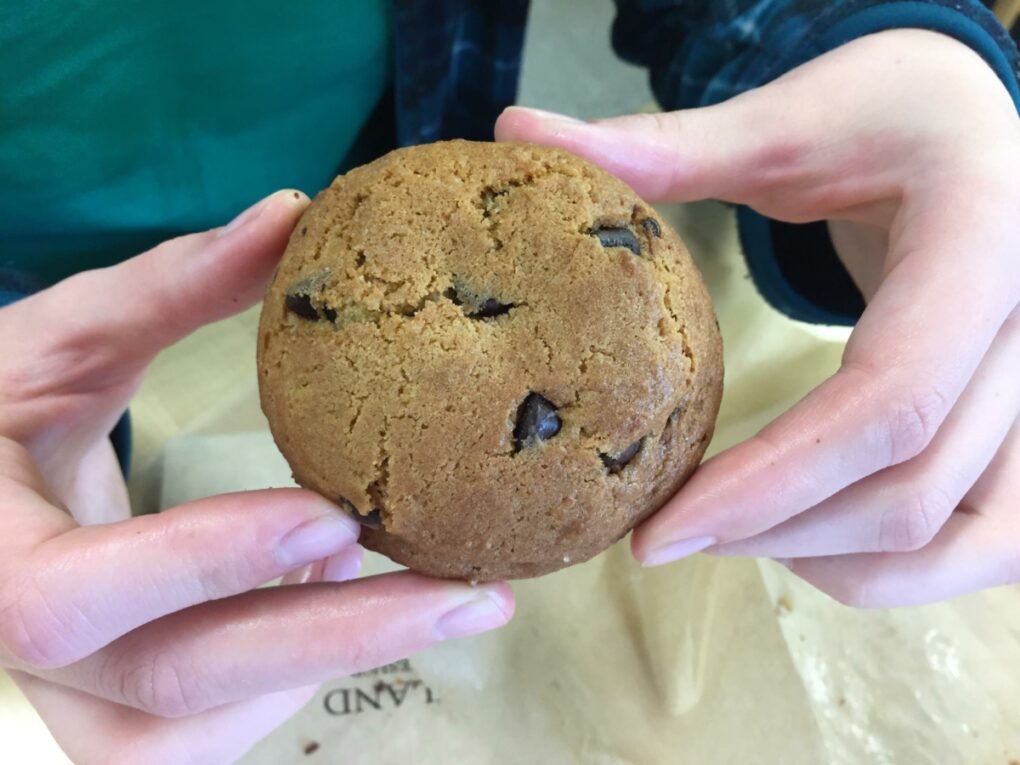
Jump to:
The Parts of An Egg
The USDA categorizes eggs as animal product, and labels them primarily as a protein, much like meat, poultry, seafood, beans, and nuts. Eggs are mostly water, but high in proteins, vitamins, minerals, healthy fats, and trace nutrients.
A large egg has 78 calories, 5g of fat, and 6g of protein, which contains all 9 essential amino acids. Iron, phosphorus, selenium, and vitamins A, B12, B2, and B5 are all abundant in eggs as well, among others.
Eggs are a versatile food that can be eaten on their own or combined with other ingredients to make sauces, custards, batters, and foams. In recent years, there's also been increased demand for vegan egg substitutes for baking, and even egg-free recipes.
But if you can't or don't want to change recipes, how can you swap for eggs in baked goods?

Why We Use Eggs in Baking
Eggs are incredibly healthy and used liberally in many recipes. In fact, they serve several purposes in baking. Making cake or cookies without eggs or an egg replacement, your baked goods will be dry, flat, and less flavorful— eggs ensure that baked goods not only look good but taste great.
Binder
Eggs are commonly used as a binder, meaning they keep all the ingredients in your cookies, brownies, or cakes held together. This gives your baked goods structure and keeps them from crumbling.
The egg white portion also contains protein, which is the main component that gives your finished product structure. When eggs are heated, the proteins coagulate or connect, adding to the stability of baked goods.
Leavening Agent
Eggs trap air pockets in foods, causing them to expand when heated. This causes foods to puff up or rise, lending volume and a light, airy texture to baked goods such as soufflés, meringues, and pancakes.
Enhance Flavor
Eggs are also used to enrich the flavor of baked goods. They have a high-fat content, which is necessary for excellent flavor and texture.
When exposed to heat, eggs help to carry the flavors of other ingredients and promote browning. They contribute to the golden-brown appearance and flavor of baked goods, including your favorite cookies and cakes.
Add Moisture
The liquid from eggs is absorbed by the other ingredients in a recipe, adding moisture to the finished product. Baked goods benefit from the added moisture from eggs, and without the egg(s), your baked goods will end up very dense and chewy.
Cake batters tend to contain more liquid ingredients to keep the cake moist, and more leavening ingredients to help it rise, so they take to egg replacements more easily. On the other end of the spectrum, cookie dough has a heavy consistency and tends to require fewer leaveners and moisturizing ingredients.
However, it does require some liquid, and eggs are still integral to providing the necessary moisture and consistency to your dough.
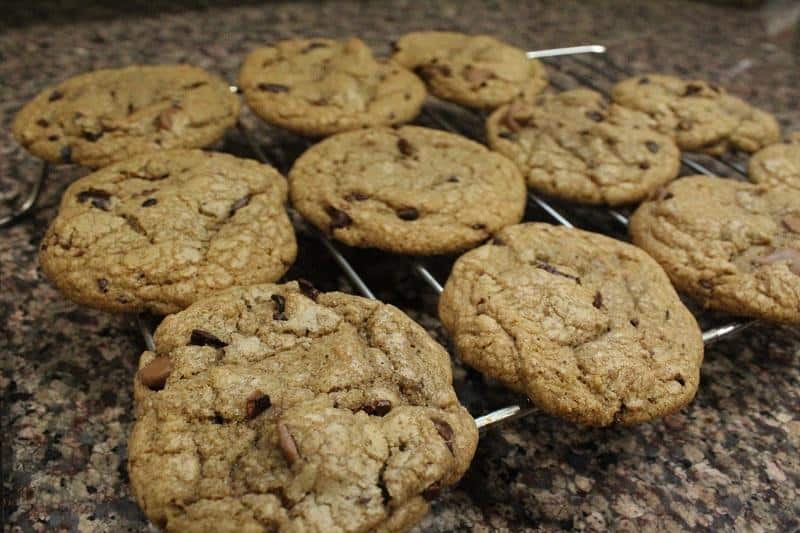
Best Eggs Substitutes for Baked Goods
Eggs are an essential component in many recipes. Whatever your reason for replacing them, there are plenty of egg alternatives you may already have in your pantry, or can easily snag from the grocery store.
When you replace eggs in a recipe, you must substitute an ingredient that can replace the purpose(s) it serves. Remember that eggs may act as a leavening agent to help your final product rise, a binder to help hold everything together, or as a flavor or moisture enhancer.
Although replacing eggs in a recipe results in a slightly different end product, there are several swaps you can make where you'll barely notice the difference; most of them are vegan egg substitutes, too! Importantly, your egg substitute should be equal in volume to the amount of egg you are omitting.
When substituting eggs in recipes, keep this measurement in mind: a large egg is roughly ¼ cup (4 tablespoons/60g/2oz), so you must replace that volume in your recipe.
Remember that not all substitutions are created equal, so think about what you're aiming for and be ready to test it out first. Experiment with various egg alternatives to get the desired flavor and texture in your recipes. We'll begin with the most basic swaps and then progress to less common ingredients.
Chia Seeds or Flax Meal + Water
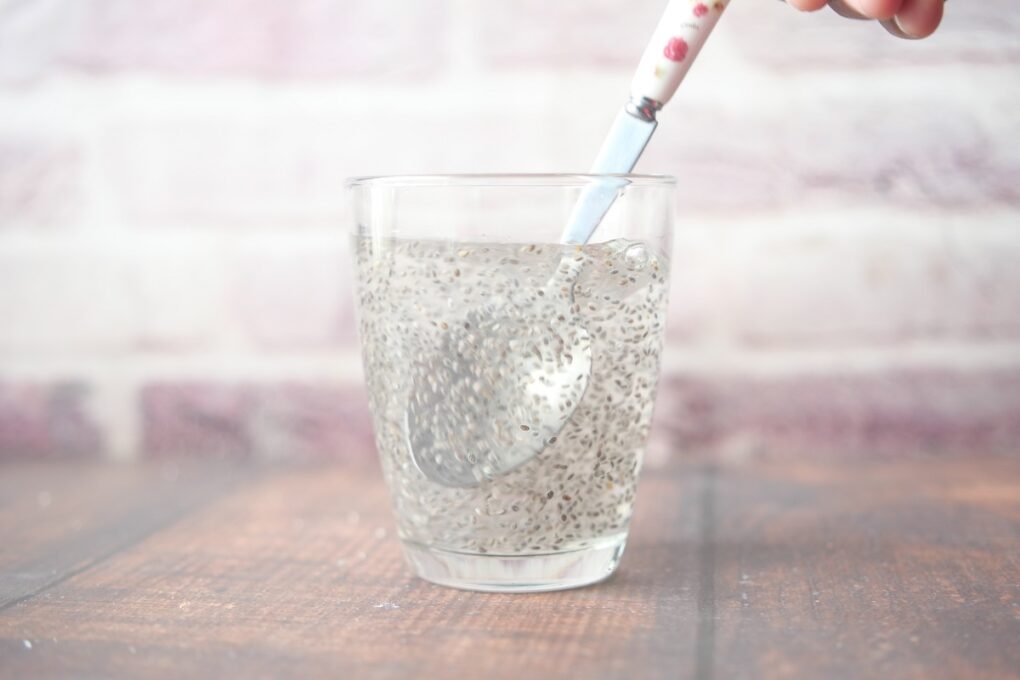
Both chia and flax are tiny seeds packed with nutrients. They contain a lot of omega-3 fatty acids, fiber, protein, and a bevy of antioxidant plant compounds. Both chia and flaxseed add a mild, nutty flavor to recipes.
Ground flaxseed, also known as flax meal, is a popular vegan egg substitute. Its egg-like consistency binds ingredients together, and the same goes for chia seeds. Through similar mucilaginous mechanisms, chia seeds and ground flaxseeds work impressively well as a vegan egg substitute.
The “flax egg” mixture described below can substitute one large egg, but may not add as much structure to cookies or other hardier recipes. As a result, baked goods may be somewhat heavier and denser. They may also come out with a nuttier flavor, so it is best to use flax eggs in baked goods with nuts in them.
To create the infamous "chia egg" or “flax egg,” combine 1 tablespoon of either one with three tablespoons of water. Allow it to rest in the fridge for 15-20 minutes or until it becomes gelatinous.
Cornstarch + Water
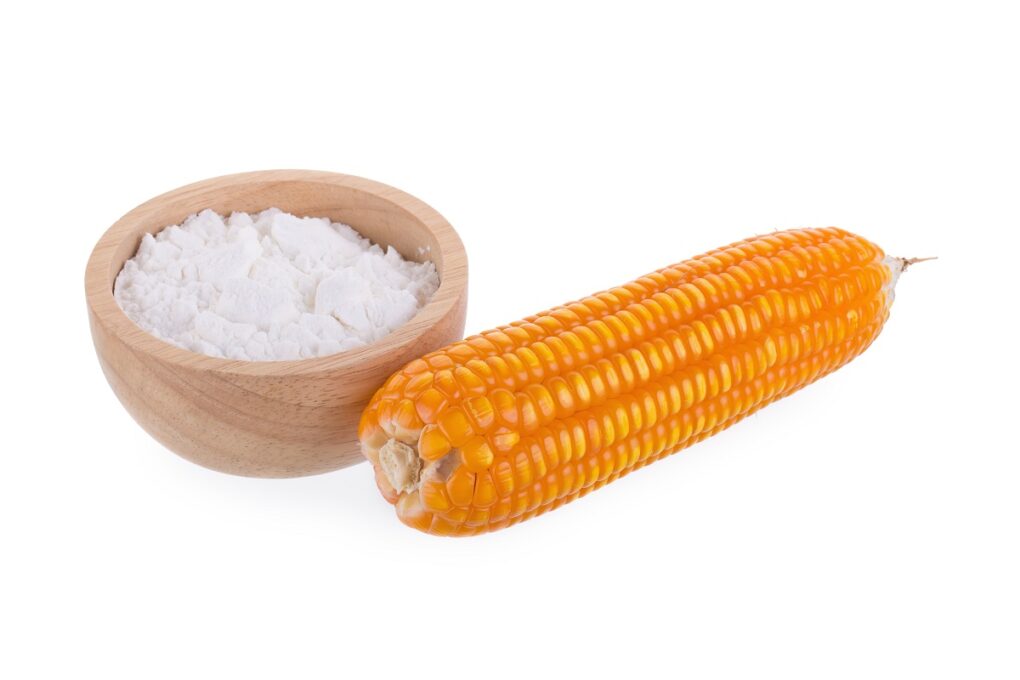
Cornstarch is a fine, white powder made from the starchy endosperm of dried corn kernels. It is odorless and flavorless. This carbohydrate is a common food ingredient, often used to thicken sauces or soups.
It shines as an egg alternative for baking, particularly creamy and custardy treats like puddings and pies. In a pinch, you can use it as an egg replacement in cookies, cake, and brownie recipes.
Cornstarch, as a thickener, produces a viscous, eggy substance when mixed in the proper proportion with water. Always make a slurry of cornstarch and water rather than adding the cornstarch in with your dry ingredients; otherwise you won't properly activate the binding properties.
The ratio below will create a thick, gloopy mixture similar to the consistency of a beaten egg. Replace the eggs in a recipe with this mixture at the same time as the recipe says to add the eggs. Your final baked goods will be a little denser, but it won’t be too noticeable.
For each large egg that needs to be replaced, combine 2 tablespoons of cornstarch and 3 tablespoons of water.
Arrowroot Starch + Water
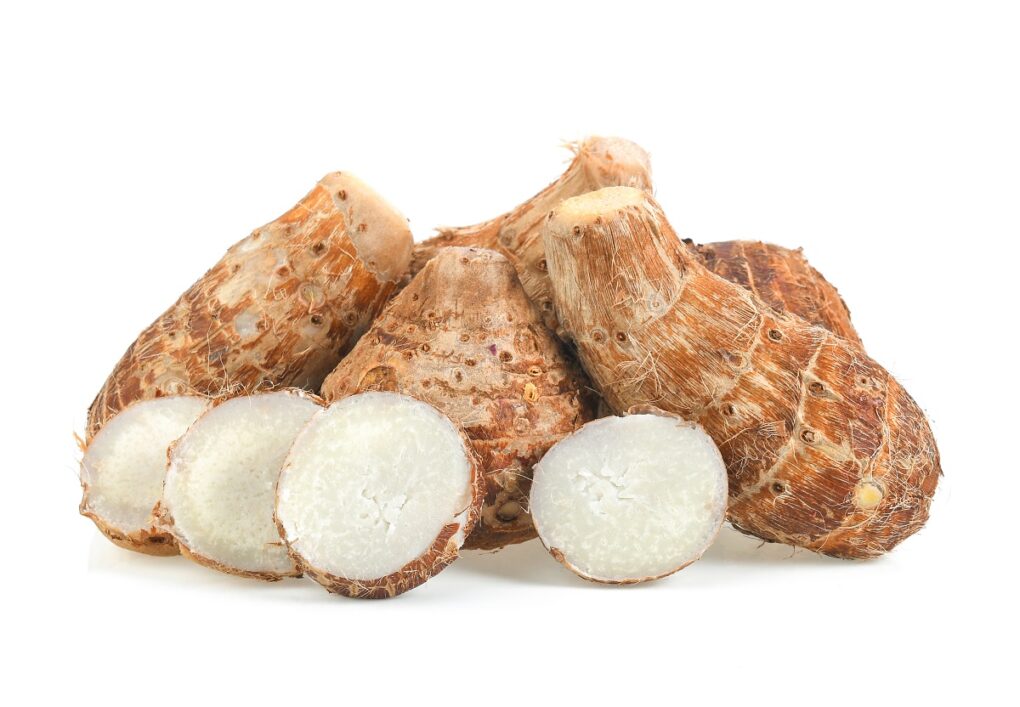
Arrowroot is a starchy root vegetable similar to yam, cassava, sweet potato, and taro. It is a tropical tuber native to Indonesia, and has garnered quite the gluten-free following in recent years.
To make it usable in baking, this root vegetable is usually processed into a powder, called arrowroot starch, arrowroot flour, or arrowroot powder. This naturally grain-free starchy white powder has the same thickening properties as cornstarch.
Arrowroot starch is a versatile thickening agent that can be used to add texture and structure to cooking and baking recipes. It also holds up well when combined with acidic or frozen ingredients, as it has no taste of its own and leaves food glossy & clear.
While it doesn't hold or reheat well, when mixed fresh, it acts as a good egg alternative for cookie & brownie recipes. As an egg substitute in baking, arrowroot may add a slight sweetness to your final recipe.
Mix 2 tablespoons of arrowroot starch with 3 tablespoons of water to form a slurry before adding the mixture to your batter.
Vegetable Oil, Baking Powder, & Water
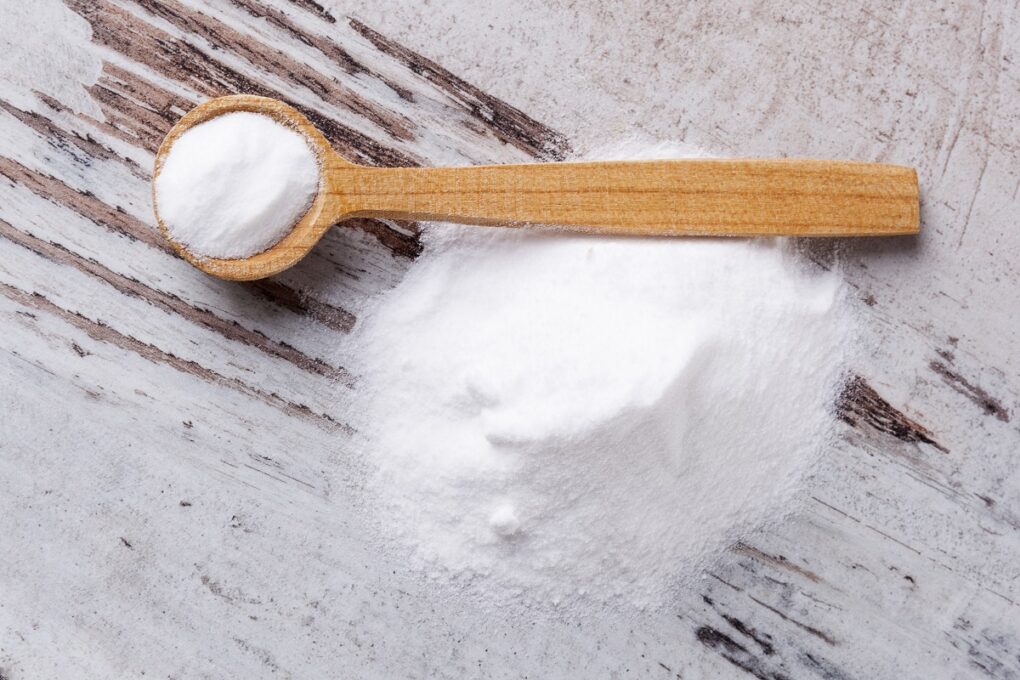
A mixture of vegetable oil, baking powder, and water can be used as a substitute for egg in cookies in particular, creating a more convenient egg substitute because you most likely already have these ingredients at home.
This particular egg replacement will add moisture to batter or dough and keep it from becoming too dense & chewy without adding any flavor. It's also a great egg substitute if you need to replace multiple eggs in a recipe, as it won't make your baked good too greasy or greatly change its flavor profile.
This easy mixture also mimics the purpose of eggs in a cookie recipe perfectly— your baked goods may not rise as much as with eggs in them but they'll still hold out well.
To replace one large egg, whisk together two tablespoons of water, two teaspoons of baking powder, and 1 tablespoon of neutral-tasting vegetable oil.
Xanthan Gum+ Water
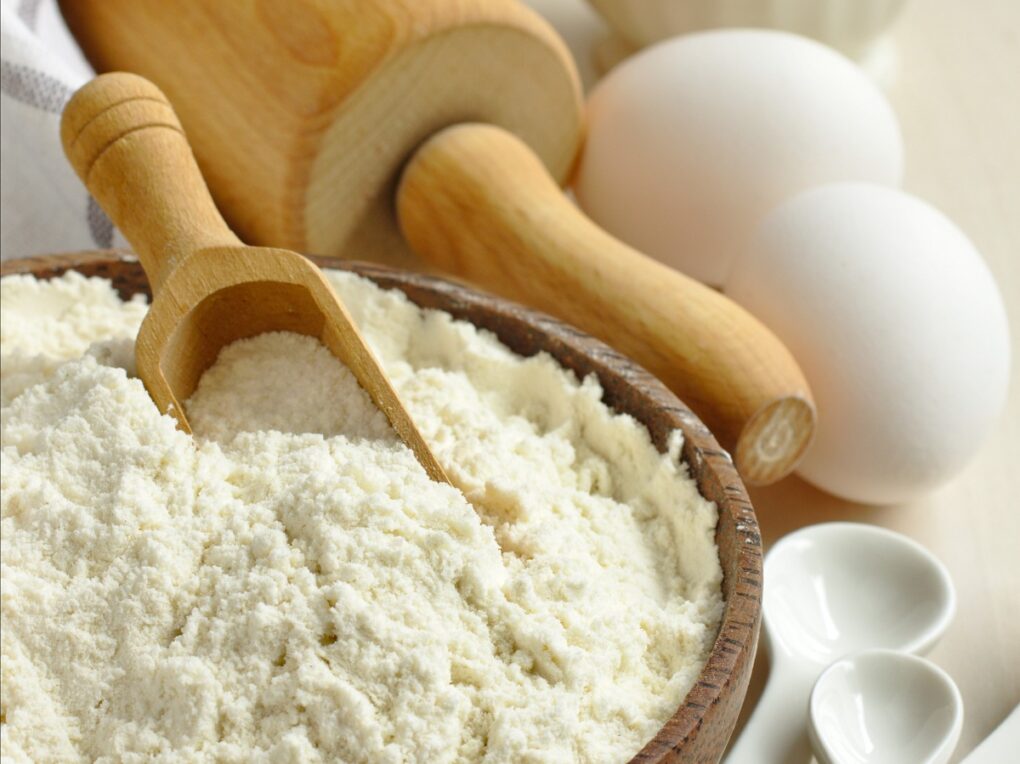
Thanks to an increase in healthy eating, xanthan gum has become more popular in recent years. It is frequently used as a gluten substitute in gluten-free flour, and as a result, in gluten-free baked goods.
Xanthan gum is produced when sugar is fermented by a bacterium known as Xanthomonas campestris. The process produces a viscous substance, solidified with the addition of alcohol, and then dried & ground into a powder.
When xanthan gum is added to a liquid, it disperses quickly to form a viscous, stable solution. This fine white powder has a texture and consistency similar to egg whites. That makes it an excellent thickening, suspending, binding, and stabilizing agent for a wide range of products.
It has no flavor, but it's very thick and may make your baked goods a bit more dense than usual. In the grocery store xanthan gum is often labeled as an "egg replacer," with specific manufacturer instructions for substituting one whole egg or just one egg white.
Try this ratio to replace each large egg: whisk together ¼ teaspoon of xanthan gum in ¼ cup water.
Mashed Bananas
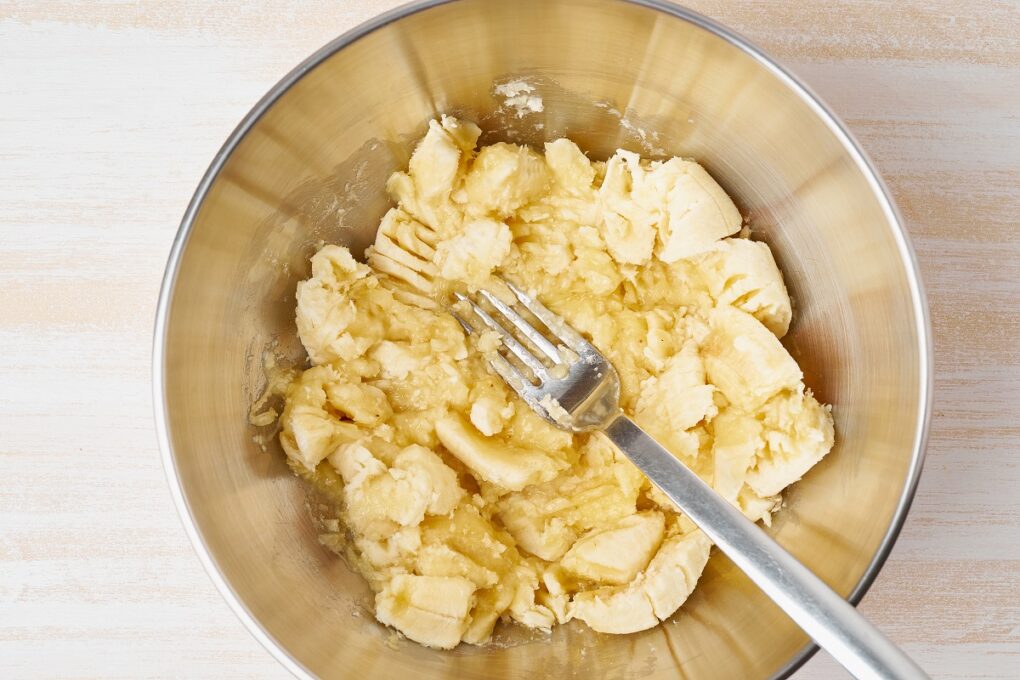
A popular egg substitute when baking is mashed banana. To replace an egg with mashed banana, make sure they're ripe. The riper, the better. If you try this swap, you may notice a difference in taste and texture — but it will still be delicious!
It is important to note that the banana flavor WILL come through in the recipes. So choose to use it in ones where the other ingredients will mask the flavor of the banana or it will match the flavor profile of what you're making.
Recipes that work well with the flavor of bananas are chocolatey, nutty, or fruity recipes. Ripe bananas contain a ton of sugar, but will add moisture and help bind baked goods; consider reducing the amount of other sweeteners and liquids in the recipe.
Mashed banana is an excellent egg substitute, but it will make your baked goods softer than usual. Your creations won't be as gooey as when made with eggs, so if you want to make crunchy baked goods, this may not be the best substitute.
To use banana as an alternative for one egg, simply mash half a medium-sized banana (~65g of banana) with a fork.
Unsweetened Applesauce
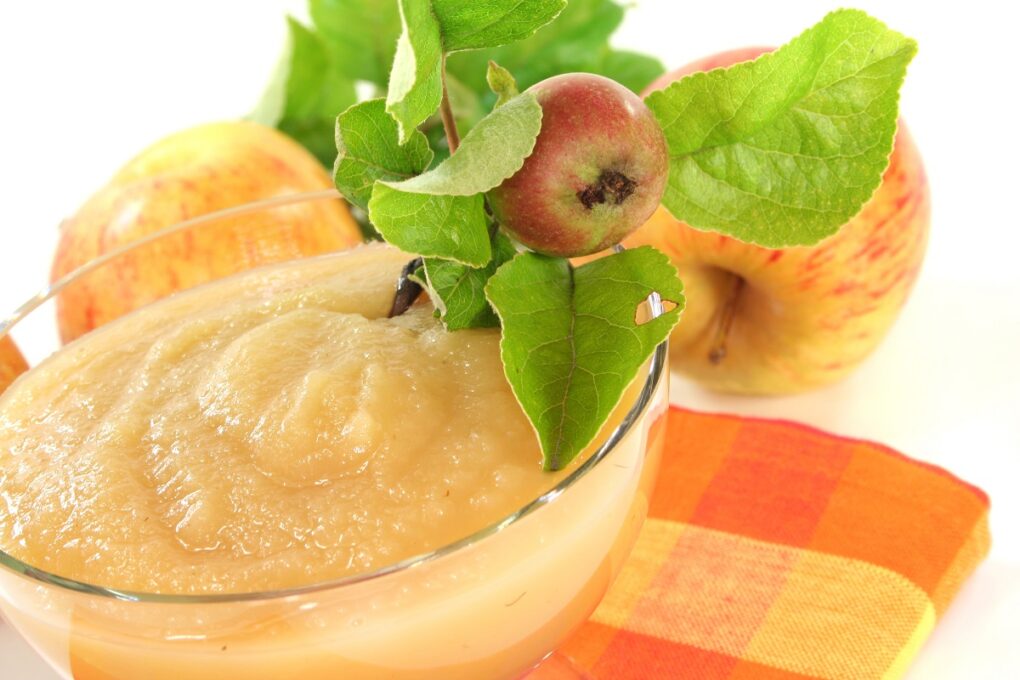
Unsweetened applesauce is one of the most versatile egg substitutes for baking. Many types of applesauce are sweetened or flavored, so opt for an unsweetened applesauce so that it's easier to tweak & adjust the sweetness of your recipe.
But if all you have is sweetened applesauce, that’s fine— just be sure to cut back the sugar in your recipe. In baking, thanks to its high pectin content, applesauce serves the same purpose as eggs, in terms of binding.
Making an applesauce egg substitute is as simple as making your own applesauce or grabbing a container of the store-bought stuff. Apples are not a great leavener, so your baked goods will be denser and moister with every egg you replace.
Having said that, the texture will be different—more moist, airy, and fluffy. In many cookie recipes, unsweetened applesauce will be the ideal substitute for eggs.
Adding applesauce will make your recipe denser, but an additional ½ teaspoon of baking powder will help lighten the texture. In addition, the ingredient adds flavor, so use this swap only in recipes where the taste of apples will complement the other ingredients.
To replace one egg, use ¼ cup applesauce (about 65 grams or four tablespoons).
Aquafaba (Chickpea Water)
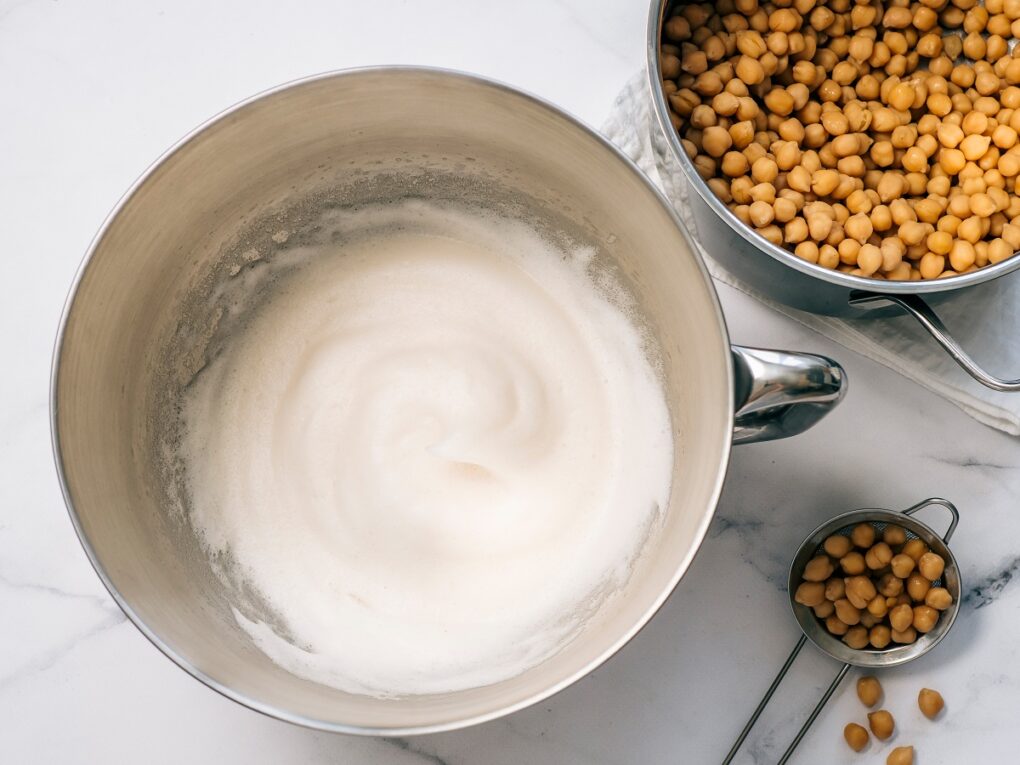
Aquafaba, or chickpea cooking liquid, is the same as that liquid you find when you open a can of chickpeas. In Latin, "aqua" means water, and "faba" means bean, so it's literally 'bean water.' But it's also a great substitute for egg.
Chickpea water is primarily water with a trace of protein. It has the same color and viscosity as egg whites, though it has a slight bean aftertaste and absolutely no egg flavor. Additionally, egg whites contain approximately 10% protein, whereas chickpea water contains approximately 1% protein.
Aquafaba is popularly used as a vegan egg substitute in baking and sometimes savory recipes. It’s chock full of carbohydrates, amino acids, and other soluble plant solids that are similar to eggs and perform as well as eggs - it can emulsify, foam, bind, gelatinize, and thicken.
The starches in aquafaba provide stability, and the saponins are natural foaming agents. Chickpea cooking liquid, when whipped, forms foamy, soft peaks similar to egg whites.
When substituting one whole large egg in a recipe with aquafaba, three tablespoons should suffice.
Buttermilk
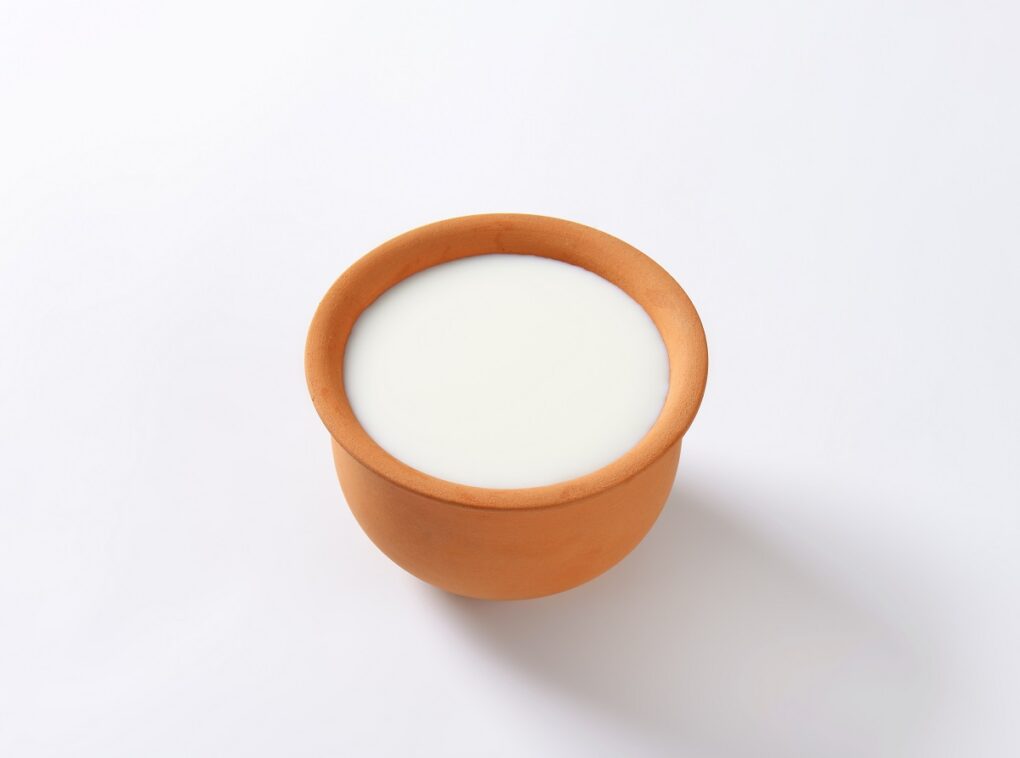
Buttermilk, quite simply, is fermented dairy milk. It's made up of water, milk proteins, lactose, and a small amount of fat. This ingredient, like eggs, will help bind ingredients together while also adding moisture. Buttermilk also has a tangy flavor that may complement certain baked goods.
Using buttermilk to replace eggs in a chewy brownie recipe is an excellent way to use up buttermilk that’s just sitting in the fridge. Buttermilk is an acidic ingredient that also helps tenderize gluten, resulting in softer baked goods with more body.
It even helps moisten and leaven baked goods, making them rise properly rather than fall flat. Regardless, it's also wise to tweak your recipe since you'll be increasing the volume of your wet ingredients. You can do this by adding a tablespoon more flour per egg being replaced.
The acidity in the buttermilk naturally helps baked goods rise and help bind the dough. You can also help prevent your baked goods from flattening too much in the oven by chilling the dough in the fridge before baking.
If you don't have buttermilk, mix a cup of whole milk with a tablespoon of white wine vinegar or lemon juice and set aside for 10 minutes, or until it curdles, then use just as you would buttermilk in desserts.
When using buttermilk as a substitute for eggs in baking, use a quarter cup of buttermilk for a whole large egg.
Carbonated Water

Carbonated water is a refreshing beverage, but it can also act as a replacement for eggs in a variety of baked good recipes. No matter where you buy it from, carbonated water is merely water that's been infused under pressure with carbon dioxide gas.
This results in a bubbly drink known as sparkling water, club soda, soda water, seltzer water, and fizzy water. Note that store-bought carbonated water is usually flavored with salt, so it will add a slight saltiness to the recipe.
You may want to reduce the amount of salt in your recipe, if any, or keep the excess if you want a stronger salty flavor to balance out the sweetness of your dough or batter. Other minerals are occasionally included in trace amounts, but shouldn't affect the flavor of your final product.
Carbonated water not only adds moisture to a recipe, but it is also an excellent leavening agent. The carbonation traps air bubbles, which make the finished product light and fluffy. It's also flavorless, colorless, and odorless (salt notwithstanding)
To replace one large egg, use ¼ cup (60ml) of carbonated water.
Nut Butter
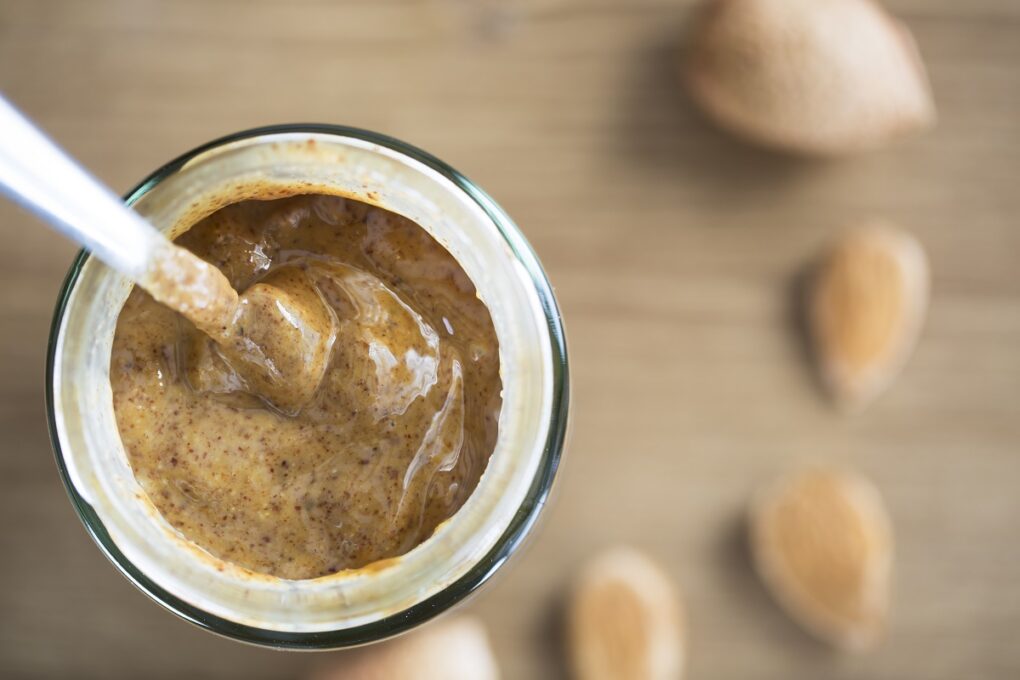
Nut butter is made by grinding any variety of nuts until they form a paste-like consistency. Nut-based spreads can be crunchy or creamy, and they can be used in both sweet and savory recipes as a vegan egg replacement.
Almond butter, cashew butter, walnut butter, macadamia nut butter, and pecan butter are all popular and easy-to-find options. Some nut butters are even high in fiber, protein, and fatty acids, as well as vitamins and minerals that are good for your health.
In most recipes, nut butter of any type can be used in place of eggs. This swap may alter the taste of your finished product, however, so use this replacement in nuttier recipes. To ensure that everything mixes properly, use creamy nut butters rather than chunky varieties.
Frequently Asked Questions
There are many options for substituting eggs in baking, including mashed banana, applesauce, silken tofu, flaxseed meal, and yogurt. The best substitute depends on the recipe and desired texture.
For baking bread, a good egg substitute is a mixture of water and ground flaxseed, which can help bind the dough and provide moisture.
A good egg substitute for cookies is generally either applesauce, for texture and flavor, or a mixture of water and baking powder or baking soda, which can help the cookies rise and provide structure.
For no-bake recipes, a good egg substitute is either nut butter or applesauce, which can help bind the ingredients and provide structure, without ruining the flavor. The ideal nut butter or applesauce to egg ratio is ¼ cup applesauce per egg, or 3 tablespoons of nut butter per egg.
📖 Recipe
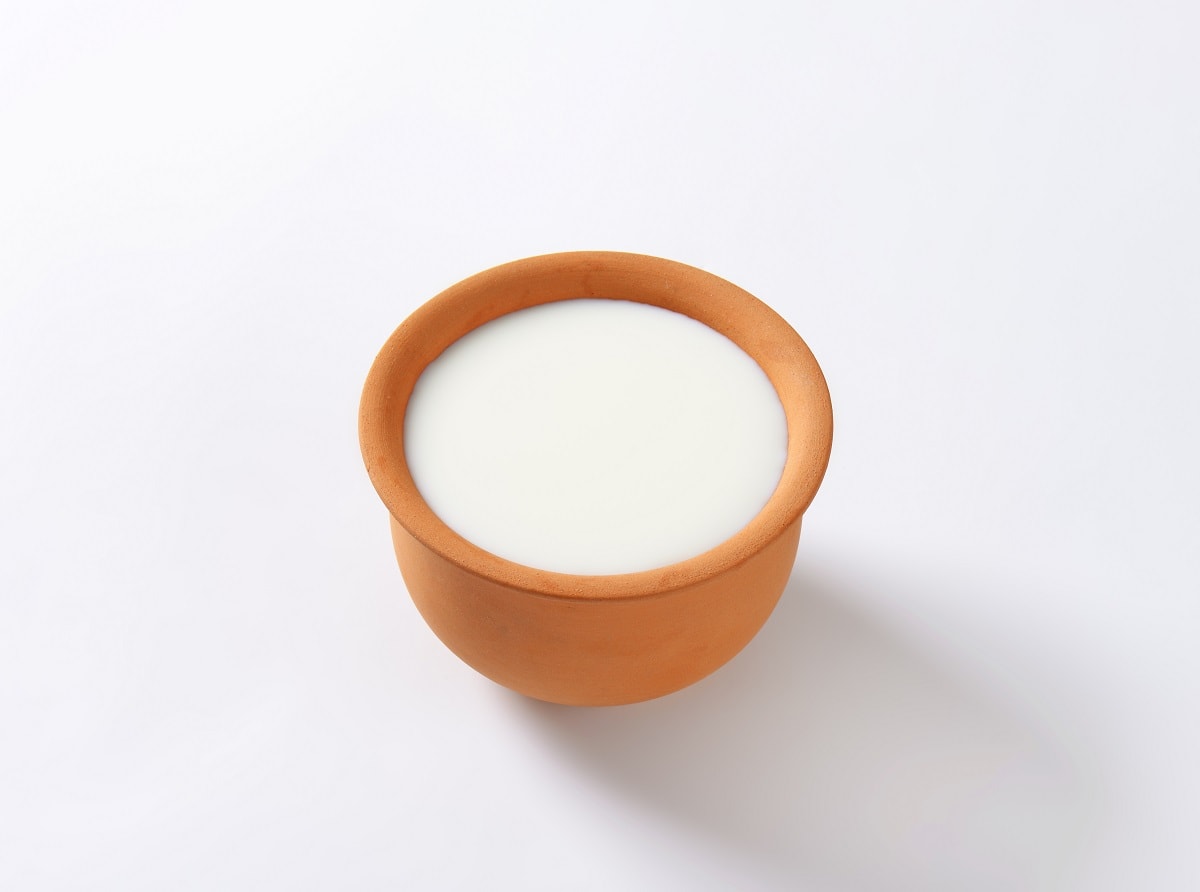
11 Best Egg Substitute for Baking (CHEAT SHEET)
Ingredients
Best egg substitute for baking
- 1 Tbsp. Chia Seeds or Flax Meal + 3 Tbsp. Water
Best egg substitute for cookies
- ¼ Cup Unsweetened Applesauce
Best egg substitute for vegans
- ½ Medium Banana Mashed
Instructions
- Choose the best egg substitute for your particular recipe, then multiply it by how many eggs your recipe calls for.
Notes
- 1 Tbsp. Chia Seeds or Flax Meal + 3 Tbsp. Water
- 2 Tbsp. Cornstarch + 3 Tbsp. Water
- 2 Tbsp. Arrowroot Starch + 3 Tbsp. Water
- 1 Tbsp. Oil + 2 tsp. Baking Powder + 2 Tbsp. Water
- ¼ tsp. Xanthan Gum + ¼ Cup Warm Water
- ½ Medium Banana, Mashed
- ¼ Cup Unsweetened Applesauce
- 3 Tbsp. Aquafaba (Chickpea Water)
- ¼ Cup Buttermilk
- ¼ Cup Carbonated Water
- 3 Tbsp. Nut Butter

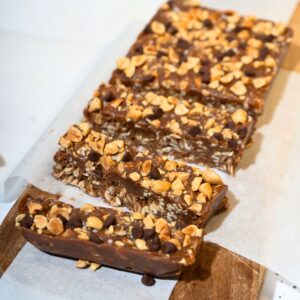
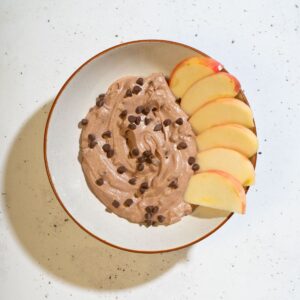
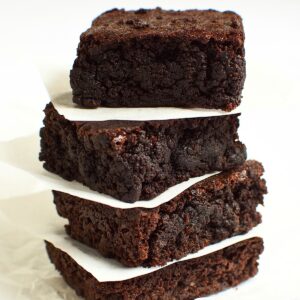

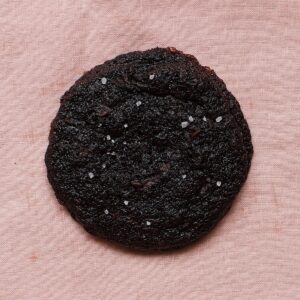
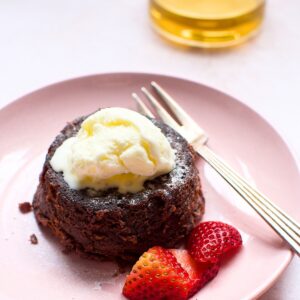
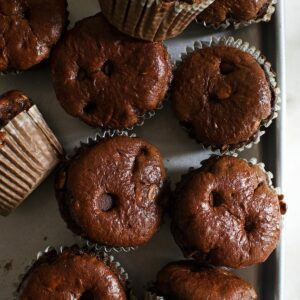
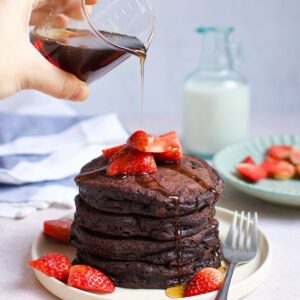
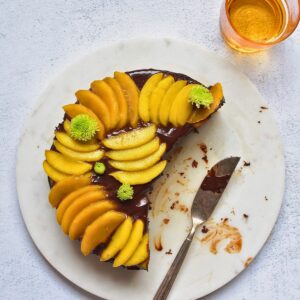

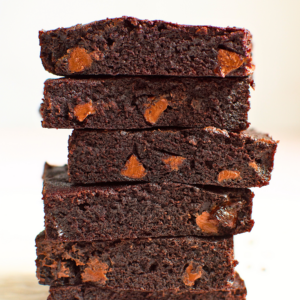
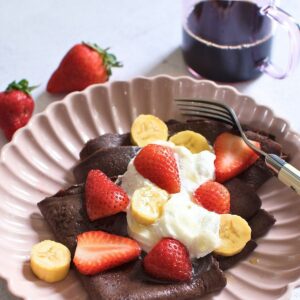

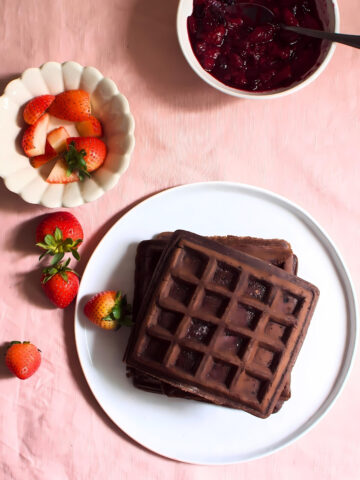
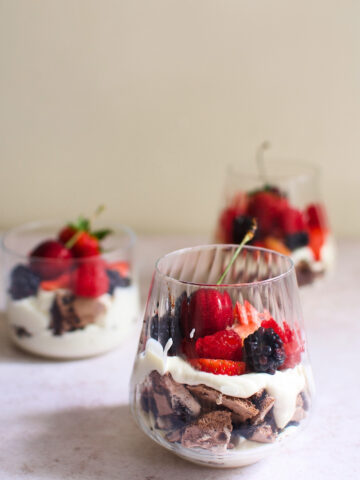
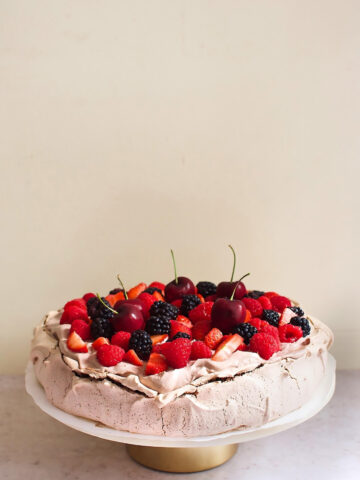
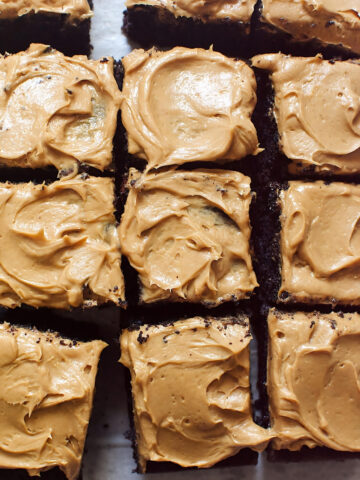
Comments
No Comments